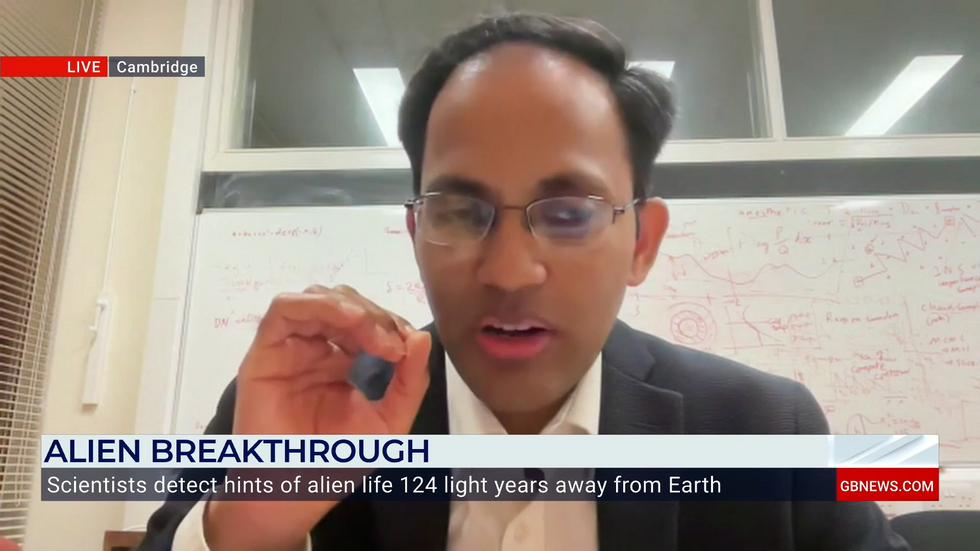A Professor of Astrophysics and Exoplanetary Science at the University of Cambridge described the finding as 'very good' with 'the potential to be very big'.
Don't Miss
Most Read
Trending on GB News
Scientists have detected molecules on another planet that could potentially indicate the presence of microbial life, in what may prove to be a groundbreaking discovery.
A Professor of Astrophysics and Exoplanetary Science at the University of Cambridge described the finding as "very good" with "the potential to be very big".
It has set scientists "on a path" towards potentially confirming extraterrestrial life for the first time.
The discovery centres on K2-18b, a massive planet orbiting a star approximately 120 light-years from Earth.

Cambridge researchers are urging caution
GB NEWS
Scientists have detected dimethyl sulfide in the planet's atmosphere, a molecule that on Earth is typically produced by ocean algae.
However, researchers are urging caution about making definitive claims at this stage.
LATEST DEVELOPMENTS:
Professor of Astrophysics and Exoplanetary Science at the University of Cambridge Nikku Madhusudhan told GB News: "We in science, we have to operate with an extremely high level of caution.
"We really work with evidence, as much evidence as we can get.
"We are for now, talking about microbial life and the amount of that could be significantly, the amount of flux biological gases produced by life could be much higher than on Earth.
"We are talking about microorganisms, not complex life. Life forms and we don't have that information just yet.
"We want to be very careful even though we don't know that it's there.
"Just saying that there is a potential for that and we need to do more observations.
"But the important bit is that we as a civilisation have we have reached a state where we can even ask and observe, ask these questions and observe at planets where we can answer those questions. It's amazing."
The discovery was made possible by the James Webb Space Telescope, which has only been operational since late 2021.
The scientist suggested we are "re-entering an era of tremendous space exploration" with such discoveries.









